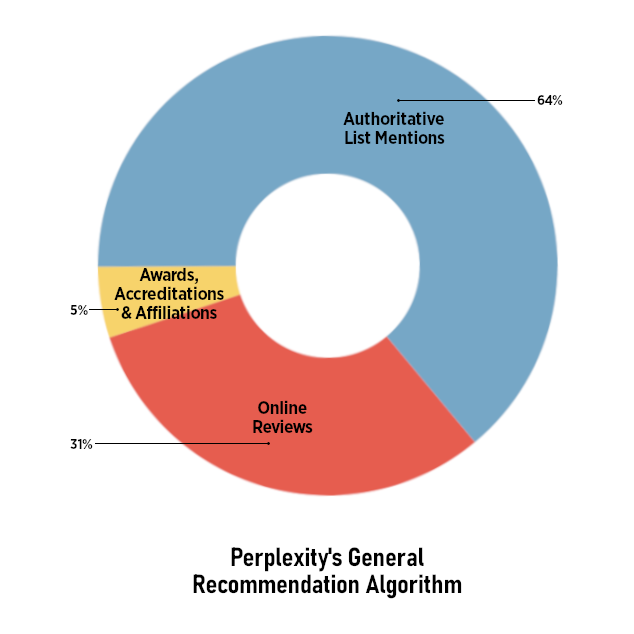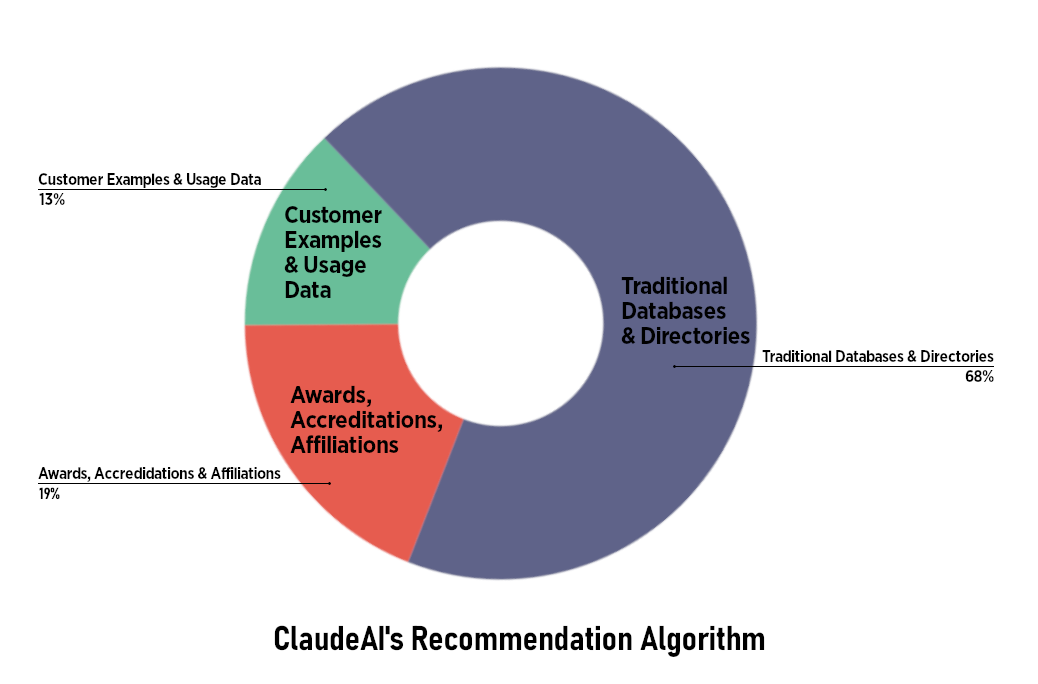Future Trends in Generative Engine Optimization (GEO)
The rapid development of AI-driven search engines sparked a revolution in Search Engine Optimization: Generative Engine Optimization (GEO). Unlike traditional SEO, which fixates on keywords and backlinks to satisfy traditional search engines, GEO zeroes in on aligning content with the needs of generative AI systems. This shift isn’t just a trend; it's the new frontier of digital visibility. Emerging trends in GEO will shape how businesses adapt their digital strategies to stay competitive.
Table of Contents
Key Takeaways and Predictions
How are AI advancements and algorithm developments impacting GEO?
How can businesses prepare for and adapt to these upcoming developments in GEO?
What AI tools and technologies are developing for GEO?
Avoid reliance on AI for Generative Engine Optimization
Conclusion
Key Takeaways and Predictions
Generative search engines rely on probability. Future trends will align with how AI models can predict a higher probability of favorable outcomes.
AI models will increasingly prioritize factual, reliable information supported by credible sources.
Including citations, quotations, and statistics will become essential for boosting content visibility in AI search results.
Securing mentions in reputable directories and high-authority resources will gain importance for ranking well.
High rankings in traditional search engines will become less critical as AI relies more on its own data.
More AI search engines will adopt social sentiment analysis, making brand reputation and online presence more crucial.
Personable content and user reviews will increasingly determine rankings for transactional and commercial keywords.
Businesses will need to utilize AI tools for content generation and analytics to keep pace with rapid advancements.
GEO strategies will demand quick, ongoing content adjustments facilitated by AI technologies.
Optimizing for speed, mobile-friendliness, structured data, and secure protocols will continue to be essential.
Despite AI advancements, human insight and creativity will remain crucial; over-reliance on AI should be avoided.
How are AI advancements and algorithm developments impacting GEO?
Each AI chatbot interprets tokens and determines content output differently. FirstPageSage breaks down the four most popular AI chatbots into pie charts of algorithm facets, which may be reverse engineered into optimization strategies.
Authoritative list mentions and PR will become increasingly prevalent for GEO
Among the top players in AI chatbots, authoritative list mentions hold the most consistency in prioritizing content output. Pursuing highly-reputable listicles and directories will maximize opportunities to rank. This also plays into the larger picture of how these AI models determine what kinds of content to reference when generating a response. When searching for the "best" of a particular category, an AI model derives information from reputable directories. Therefore, it will become increasingly valuable to focus on PR and references in high-authority resources to optimize for generative search engines.
Ranking highly in traditional search engines will remain important but diminish in necessity for appearance in generative search engines
AI models do still rely on top search results in Google and Bing to generate responses. This indicates that ranking highly in traditional search engines for particular search terms is still a relevant strategy. However, understanding what the AI models are searching based on the inputs enables strategists to prioritize certain keyword rankings in traditional search engines for generative engine optimization. As AI data sets increase in size and their ability to predict correct results improve, it is possible that they will rely less heavily on top ranked search results and focus on their own comprehension of information and user intent. Therefore, while it remains important to rank highly in search engines for GEO, it will become increasingly important to focus on other optimization strategies.
Social sentiment and brand authority will expand from ChatGPT to other generative search engines
ChatGPT is currently the only AI chatbot that utilizes social sentiment to make recommendations. Social sentiment aggregates content surrounding a brand's online presence and enables ChatGPT to more thoroughly understand reputability through a larger data set. Experts predict that social sentiment will become more prevalent, especially because it increases the probability of a successful outcome given a larger data set and since it specifically references user engagement, which is commonly prioritized across social media algorithms.
Personable content and reviews will become more crucial to ranking for transactional and commercial keywords
For local queries, Google Business Profile (GBP), Yelp, TripAdvisor, and Angie's List proved to be more effective than expected. This is similar in concept to selecting from directories and listicles that offer reviews on a particular subject and aligns with an AI's intention to understand human intent and thought process, since reputable human reviews are a strong source of appeasing human interest. It is likely that personable content and reviews will continue to be crucial to ranking for transactional and commercial based search intent.
Credible contextual external links are crucial for informational keywords
Incorporating citations and relevant statistics in content enhances source visibility by over 40%. Since AI models determine their outputs using probability models, it makes sense that they rely heavily on credible sources to determine if information is factual and relevant. As AI models advance their data sets, they will have more information to pull from to verify correctness. That said, utilizing credible contextual external links enables an AI to identify a large data set surrounding your content and increase the probability that it is relevant and correct. Future AI models are likely to rely even more heavily on credible contextual external links and larger data sets to determine outputs.
How can businesses prepare for and adapt to these upcoming developments in GEO?
By prioritizing context, relevance, truthfulness, and the previously mentioned changes developing in AI, businesses may improve visibility while keeping pace with technological advancements. Adopting these practices will ensure your brand remains relevant and competitive.
AI tools will become a requirement for businesses to stay ahead
As more sophisticated AI systems emerge, businesses will need to stay ahead by using tools and technologies that stay up to date with the rapid evolution of content and increase in data set sizes. This means utilizing content generation tools, AI analytics tools, and AI keyword research and categorization tools.
Future GEO strategies will involve dynamic and rapid content adjustments
As content becomes increasingly accessible and rapidly created, AI content research and generation tools will become a necessity to keep up with advancements in knowledge and technology. AI tools that automatically research topics, then update and enhance content directly on the website will become a staple of generative engine optimization. Some tools that accomplish this already exist, such as SearchAtlas's OTTO tool, which automatically optimizes titles, headings, and meta descriptions. More SEO companies will emerge with technology that accomplishes this at a larger scale and integrates more complex research models.
Which technical SEO strategies will be required to stay ahead?
Technical optimization is a vital component of GEO. Optimizing for speed and structured content will become even more crucial with the emphasis of AI models being on providing fast and relevant assistance. Here are the technical SEO optimizations that businesses will need to focus on:
Mobile Friendliness and Speed: Ensure your website is optimized for mobile use and loads quickly to enable AI models to most easily find information.
Schema Markup: Utilize structured data to help search engines and generative engines understand site structure and determine relevance.
XML Sitemap and Robots.txt: The only pages on your site that should be crawlable and indexable are those that provide useful information for user searches. Those pages must be on your XML sitemap, and pages which don't provide and aren't necessary for organic search should be added to the robots.txt file.
Secure Protocols: Security and privacy are becoming increasingly integral to people. Businesses must implement HTTPS and SSL certificates to protect user data and ensure an AI will trust their web pages.
What AI tools and technologies are developing for GEO?
New AI-driven SEO tools and technologies are developing rapidly. Most frequently, these tools target SEO content generation and in some cases, keyword research. New tools for content research and LLMs that host richer understanding of individual websites will continue to emerge. Here are some categories of AI tools and popular companies to keep an eye on:
Artificial Intelligence Content Generators: Platforms like Frase and Surfer SEO generate content based on keyword research, from headings to complete articles. Right now, these content generators fail to completely match preferred tone and style, but they are somewhat effective in traditional SEO. As they become trained on GEO strategies, they will likely expand to optimize for AI-driven search engines.
Artificial Intelligence-Powered Analytics Platforms: Analytics platforms combine traditional SEO practices with artificial intelligence-driven insights. They analyze top-ranking pages and offer guidelines on structure, keyword usage, and content length, helping businesses create optimized market content. SearchAtlas makes recommendations of headings based on People Also Ask sections and consistent headings across top search results.
Fluency Optimization: Technologies focused on fluency optimization ensure that artificial intelligence-generated content is readable and engaging. Grammarly is one of the earliest and most popular tools used to optimize fluency. WeGlot is a tool that emerged to help translate websites and optimize fluency for multiple languages.
Keyword Research and AI Clustering: Keyword Insights is a strong tool for clustering semantic keywords and keyword pillars to more efficiently develop SEO and page plans. One of the most time consuming parts of developing an SEO or GEO strategy is determining which pages to make and combine, and Keyword Insights is fairly effective in accomplishing this.
How should businesses use AI tools and technologies for Generative Engine Optimization?
To maximize your GEO efforts, it is crucial to not rely on AI but use it as a system to maximize efficiency, relevance, and research. AI tools are effective for ideation, outline curation, and research-driven insights, but they fail to replicate human communication and tone, which is crucial to ranking. When using AI to generate full paragraphs and sections of information, ensure the language is clear and concise, avoids overused jargon, adds value and original ideas, engages accurately with the target audience, and doesn't implement keyword stuffing or unnatural language.
Avoid reliance on AI for Generative Engine Optimization
The future of SEO with Generative Engine Optimization is full of potential and enables users to create more engaging, accurate, and useful content. However, it also leads to a greater likelihood that people will become reliant on AI to take care of GEO for them, which would lead to a looping AI system that optimizes content and results for itself to output. However, it is crucial to remember that the purpose of SEO and GEO is to optimize information for humans, and while AI can increase efficiency and replace specific processes, it still relies on human input, and even human reviews and credibility to generate results.
Conclusion
Generative Engine Optimization (GEO) is transforming SEO due to AI-driven search engines. To stay competitive, businesses must produce factual, well-structured content supported by credible sources. While traditional SEO practices are still important, the focus is shifting toward aligning content with AI algorithms that prioritize truth, authority, and user engagement. Utilizing AI tools can help, but human insight remains crucial. By adapting to these changes, companies can improve their visibility in AI-generated search results and maintain a competitive edge.









